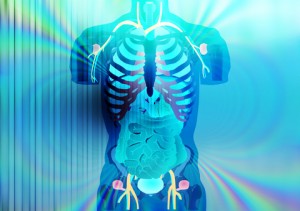Alcoholism might be the most widely known form of addiction. Scores of movies, including The Days of Wine and Roses, Leaving Las Vegas and Arthur have depicted the extremes people will go to in order to drink alcohol, and the high price they pay for those addictions. Even television shows such as Mad Men and Rescue Me have dabbled in alcohol education, helping people to understand the high cost of overindulgence. Even though this is the case, every weekend, all around the world, people gather together to celebrate their victories and drown their sorrows with alcoholic beverages. These drinkers may know all about alcoholism, but they may believe that it might never, ever happen to them. Some of them might be right, but many are likely to be wrong.
When Use Becomes Addiction
Moderate consumption of alcohol, in which a user has complete control over consumption and doesn’t feel compelled to use alcohol in any way, doesn’t meet the classic definition of alcoholism. This remains true even if the person drinks heavily on a regular basis. People like this might be abusers of alcohol, and they might certainly need to consider cutting back on the amount of alcohol that they drink, but they might not be considered true alcoholics.
Someone who meets the definition of an alcoholic has a compulsion to drink, even though the person knows that alcohol isn’t helpful.
People with alcoholism might:
- Drink while at work
- Drink first thing in the morning
- Feel upset, ill or shaky when not drinking
- Use alcohol when they’re unhappy
- Spend hours each day buying or drinking alcohol
These people might go to great lengths to hide their addictions from their friends and family members, and they might have good reasons for doing so. According to a study published in the journal Alcohol and Alcoholism, people who are alcohol dependent face a significant amount of stigma and social rejection. When compared to people who have other mental illnesses, people tend to place more blame on alcoholics, finding that they are responsible for their conditions. As this study demonstrates, people in the community at large feel that alcoholism should be controllable, and that people with the illness should be able to stop whenever they want to. Alcoholism is still considered by many to be a weakness and a moral failing, rather than a disease.
Hereditary Role
 While it’s true that alcoholism begins with an alcoholic’s decision to take that first drink, it’s both unfair and unhelpful to blame alcoholics for the disease they have. A quick discussion of the role genes play in alcoholism might make this issue come into clear focus.
While it’s true that alcoholism begins with an alcoholic’s decision to take that first drink, it’s both unfair and unhelpful to blame alcoholics for the disease they have. A quick discussion of the role genes play in alcoholism might make this issue come into clear focus.
The National Institute on Alcohol Abuse and Alcoholism (NIAAA) reports that children of alcoholics are about four times more likely than the general population to develop problems with alcohol. While many children grow up with alcoholic parents and they never develop their own problems with addiction, it’s clear that some portion of alcoholism could be blamed on genetic factors that are passed down from parent to child. Some researchers suggest that genetic propensity involves how much people respond to alcohol, and therefore, how likely they are to use alcohol again, once they have tried it.
In one such study, researchers found that 40 percent of sons of alcoholics were at high risk for alcoholism, compared to 10 percent of those who did not have alcoholic parents. Of those at high risk, a low level of response to alcohol at age 20 was associated with a greater risk of alcoholism. Of those with a low response and alcoholic parents, 56 percent became alcoholics later in life, compared to 14 percent who had a more sensitive response to alcohol. Studies like this can be difficult to understand, especially if readers are unaccustomed to medical studies and medical jargon. In essence, this study suggests that a response to alcohol might be genetically linked. People with alcoholic parents might have the right kind of response, and people without alcoholic parents do not. This study suggests that a “taste” for alcohol might truly be genetic.
Other Risk Factors
People who have specific mental illnesses might also be at higher risk for alcoholism. According to the Journal of Studies on Alcohol, alcoholism has been associated with antisocial personality disorder as well as mania. It’s quite possible that people use alcohol in order to keep these illnesses under control, but it’s also possible that these mental illnesses make the brain more susceptible to the effects of alcohol. This could have a reinforcing effect that might make alcoholism all the more likely.
Some lifestyle factors might also make alcoholism more likely. These include:
- Drinking heavily on a regular basis. This can cause a physical dependence on alcohol.
- Drinking early in life. Teens who drink might develop lifelong habits that support alcoholism.
- Living with a person who drinks regularly. It’s harder to control alcohol intake while living with someone else who does not.
- Drinking while using other drugs or taking medications. These other substances can augment the sensations caused by alcohol.
A Dangerous Habit
There’s a connection between heavy drinking and violence. Alcohol can cause emotions to rise to the surface, while reducing the brain’s ability to make good decisions. As a result, people who drink heavily are more likely to engage in threatening behavior, hurting themselves or others. Each day, terrible media stories highlight the dangers of alcoholism. In July of 2010, for example, an alcoholic man stabbed his drinking partner to death, and according to news reports, he is now “riven with remorse.” It’s unlikely the man would have stabbed his friend had he been sober, but while he was deeply intoxicated, the action seemed reasonable.
Alcoholics might no longer feel the effects of the alcohol they drink, and they might seem fully in control even while they’re deeply intoxicated. These people might also have a false sense of confidence about the activities they can perform while drunk. Put these factors together, and they produce a perfect recipe for drunk driving. Many people with alcohol problems slip behind the wheel each year, and some do so multiple times. For example, in a 2012 study of 700 adults who had been convicted for drunk driving, about half had a long history of alcohol abuse. Some had gotten treatment, and returned to drinking once more, but many others had simply tried to control their drinking and found that they could not. Perhaps they might get the help they need, once they’ve faced the stigma of an arrest for drunk driving.
People with an alcohol problem might also face discipline at work for their habits. People who abuse drugs like heroin or cocaine might be able to fool their coworkers into believing they don’t have a drug problem, as few people who don’t use these drugs know what they look like and what they can do. Alcoholics have no such cover, as most people know what alcohol looks and smells like, and they can rapidly identify symptoms of intoxication. Showing up drunk for work could cause an immediate firing, and that loss of income could lead to homelessness. While most people who drink alcohol might never consider drinking at work, alcoholics often develop physical dependence on alcohol, and they need the drug in order to function normally. For them, alcohol is a necessity, and drinking at work is almost impossible to avoid.
Alcoholism and Health
 Alcohol can do a significant amount of long-term damage to the body. For example, the liver is asked to filter the alcohol out of the blood and process the alcohol into a harmless solution that can be passed from the body. Unfortunately, alcohol can be extremely irritating to the tissues in the liver, and over time, an alcoholic person’s liver can become inflamed and irritated. In serious cases, the liver can become scarred, dead and brittle. Late-stage liver disease like this can only be effectively treated with a liver transplant, and many organ donation programs will not work with people who continue to abuse alcohol.
Alcohol can do a significant amount of long-term damage to the body. For example, the liver is asked to filter the alcohol out of the blood and process the alcohol into a harmless solution that can be passed from the body. Unfortunately, alcohol can be extremely irritating to the tissues in the liver, and over time, an alcoholic person’s liver can become inflamed and irritated. In serious cases, the liver can become scarred, dead and brittle. Late-stage liver disease like this can only be effectively treated with a liver transplant, and many organ donation programs will not work with people who continue to abuse alcohol.
Alcohol can also be damaging to the sensitive cells that line the throat, stomach and intestines, and people who drink for long periods of time might cause small bits of damage on a repeated basis. When the body is consistently being injured and then asked to heal, the risk of cancer rises. As a result, alcoholism has been linked with a large number of cancers, scattered throughout the body.
Alcohol can also do longstanding damage to the brain, the NIAAA reports. Alcohol can reduce the body’s uptake of thiamine, an important vitamin for brain health. The NIAA reports that up to 80 percent of alcoholics have thiamine deficiencies, and they may develop serious brain disorders as a result. Some develop confusion, as well as an inability to move properly. Others develop these symptoms along with profound memory loss. People with this level of damage might need help for the rest of their lives, as they may not be able to handle activities of daily living without assistance.
Getting Well
 Alcoholism can be hard to overcome without help, as alcohol consumption is almost omnipresent in modern culture. Everywhere the person turns, it seems, someone is enjoying alcohol. Sometimes, it’s best for people to enter treatment programs for alcohol addiction, so they can leave temptation behind and pull together a new set of habits in a safe place that doesn’t promote alcohol use or abuse. If you need this sort of help, please contact us at Axis. We’re happy to draw up a plan based on your addiction history and your personal needs. Please call us and get started today.
Alcoholism can be hard to overcome without help, as alcohol consumption is almost omnipresent in modern culture. Everywhere the person turns, it seems, someone is enjoying alcohol. Sometimes, it’s best for people to enter treatment programs for alcohol addiction, so they can leave temptation behind and pull together a new set of habits in a safe place that doesn’t promote alcohol use or abuse. If you need this sort of help, please contact us at Axis. We’re happy to draw up a plan based on your addiction history and your personal needs. Please call us and get started today.


